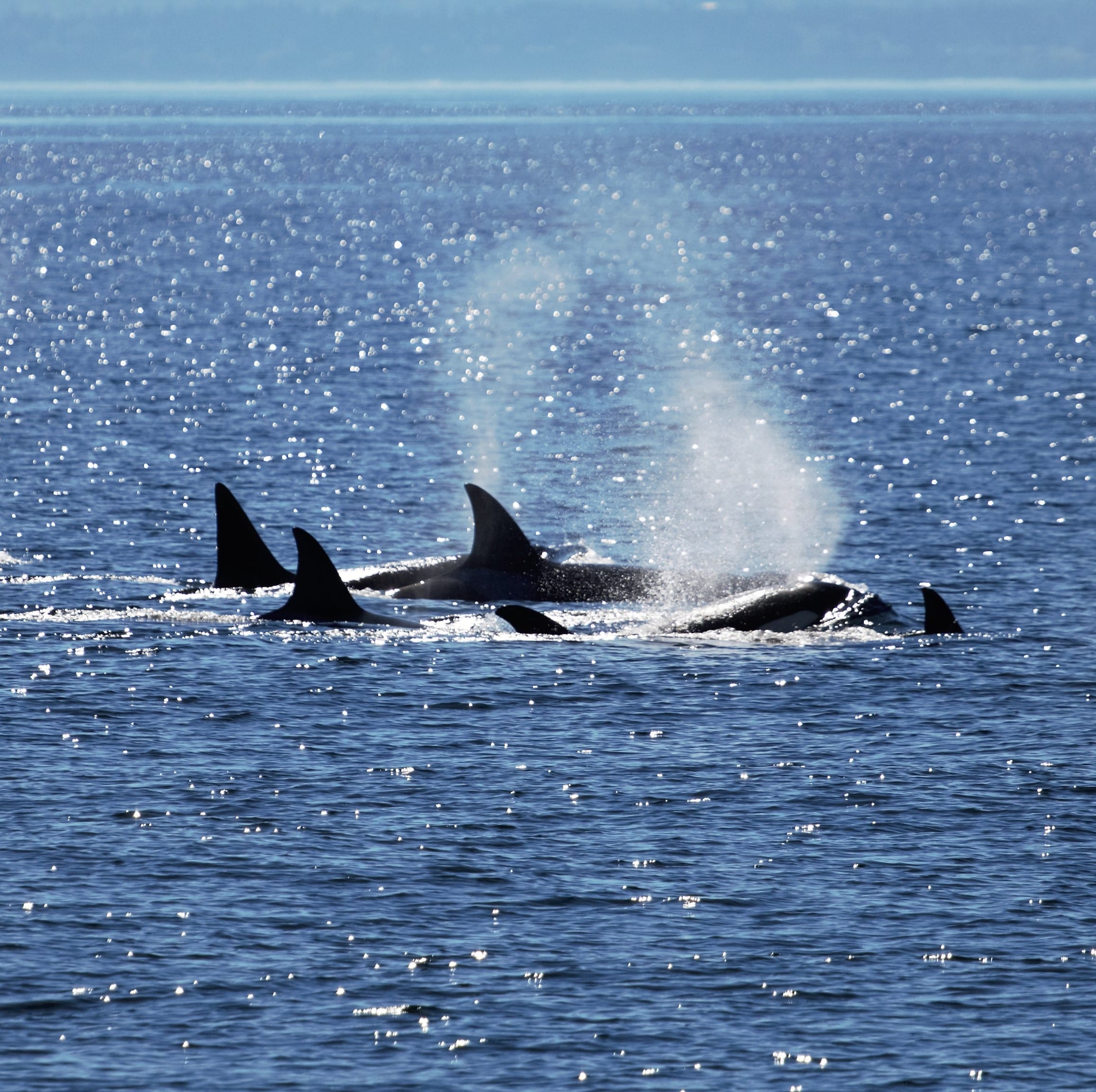Written by: Lori, Zodiac Skipper
“How exactly do whales sleep?” If you find yourself asking this question, you’re not alone. It’s a question we often get asked on our tours, and the answer is fascinating.
Whales are mammals, and despite living in an aquatic environment they do require oxygen to breathe just as we do. Not only that, but they are voluntary breathers who are conscious of each breath that they take.
Whales observed sleeping in the wild seem to have two basic methods of sleeping: either lying still horizontally or vertically, or swimming slowly while sleeping. The two whales we are most likely to see on our tours are humpback whales and killer whales – and we can observe both these methods of sleep between the two species. When humpback whales are seen sleeping, we call this behaviour “logging.” In the waters surrounding Victoria, we have seen this behaviour take place anywhere from 5-30 minutes at a time. They will lie motionless at the surface with their blowhole out of the water.
When it comes to the killer whales, we do not use the word motionless very often! While sleeping, killer whales swim very steadily and slowly close to the surface and tend to stay near to each other. Cetacean sleep is characterized by unihemispheric sleep, where a killer whale will sleep with one eye closed and rest the opposite half of their brain. Afterwards, they will alternate, closing the other eye and resting the other half. The conscious part of the brain can tell the body when to rise for a breath and can continue to monitor the environment.
It is hard to say exactly how much time whales spend sleeping each day. It likely varies depending on the whale’s environment and life events. For example, recent research has suggested that newborn orca and orca mothers do not sleep at all for the first month after a calf is born!
Cetacean sleep is mysterious and fascinating – and there is still a great deal that we do not know about these animals and their habits. Many of the world’s whales are thankfully wild and free – and we often only catch short glimpses of their lives at sea.
Book a Whale Watching Adventure with Orca Spirit to #ExperienceTheWild !









